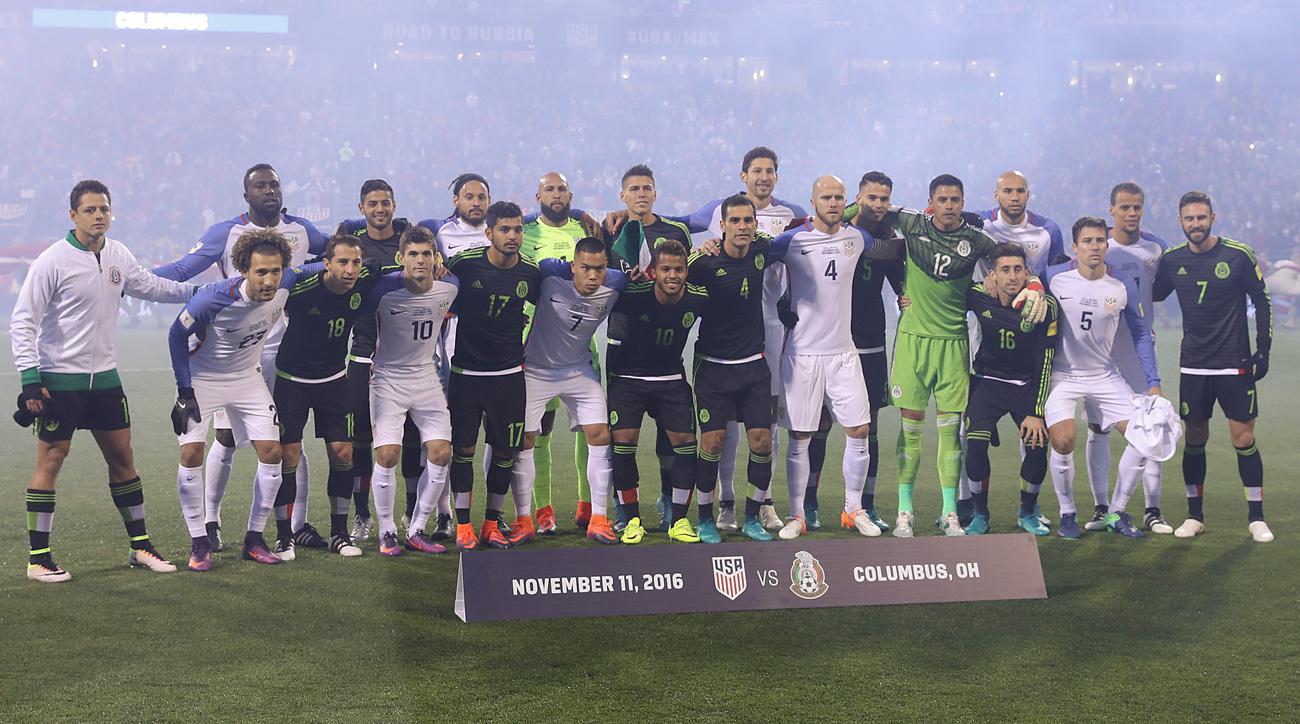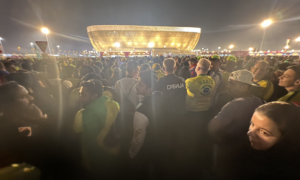International break ended Tuesday night with some pretty crazy events taking place and even that is a dramatic understatement.
UEFA qualifier matches simultaneously began at 11:45 AM PST and some crazy scenarios had to take place. Alas, France and Portugal qualified and the Netherlands were officially eliminated after failing to score seven goals on Sweden (talk about shooting for the moon, amirite?… But at least #NoEraPenal vengeance was served nice and cold).
Then came a cute little break. It would not be until 4:30 PM PST that CONMEBOL matches would start taking place. But the excitement didn’t stop there. CONCACAF matches would be starting right away at 5:00 PM PST…. Just 30 minutes after those matches had started. That meant for about an hour, there would be seven matches happening simultaneously. This was going to be insane.
Moments would pass leading up to the CONMEBOL-CONCACAF-Qualifier-palooza where I had to keep reminding myself that Mexico had already earned their ticket to Russia. As an El Tri fan, I had nothing to worry about.
The weird part was: I was still very anxious.
Of course it would be weird to possibly have Messi, the world’s greatest player, miss the biggest international tournament. But it wasn’t that. Nor was it the possibility of Chile (the Walder Frey to Mexico’s Red Wedding) also missing the World Cup.
I found myself completely nervous about what the future held for the US Men’s National Team. After saving Mexico four years ago, it felt odd to have the shoe on the other foot. But what made me more anxious throughout the day was the seemingly calm atmosphere that was occurring on soccer twitter. Maybe I’m used to the paranoia that comes with the Spanish media blowing a mid-winter Wednesday morning Mexico friendly out of proportion but the overall feeling was strange.
Perhaps it was the influx of games we had to deal with or the ease that comes with qualifying in CONCACAF but the USMNT group was weirdly confident and impervious about Tuesday’s matches. Meanwhile, the rest of those who have been in these particular circumstances still felt anxious about what could happen.
Win and we're in. Simple as that.#TRIvUSA preview » https://t.co/ywsCeajAgg pic.twitter.com/QAxN1L70g4
— U.S. Soccer (@ussoccer) October 10, 2017
And it did. Just 17 minutes into the US match against Trinidad & Tobago, Omar Gonzalez would awaken the monster that was elimination with an own goal. Alvin Jones would make it 2-0 by the 37th minute. There was hope in the second half when Christian Pulisic scored right away in the 46th minute. But, the stars had already aligned for the worst to happen. In a realm of 27 possible win-lose-draw combinations between the US, Honduras and Panama, only one had the United States being eliminated.
Trinidad & Tobago, a team already eliminated and with nothing to win, would beat the team that needed it the most.
It felt strange. And I kept trying to figure out why? In a world of bitter rivalries and obligatory name-calling that comes with internal sports “enemies,” why was I not as happy or as willing to tease those fans who were hurt by the US not going to Russia next year?
Then I remembered:
I am Mexican-American. I am not just Mexican nor am I just American. I am the middle part of a Venn diagram that surprisingly feels weird that a nation that represents an aspect of who I am will not be playing in the World Cup—even if it is a part I do not care much about from a soccer standpoint. But maybe it is the sympathy from those Mexico fans like myself who have experienced hurt before that left that feeling lingering when Guardado could not score that free kick—when he could not save the US the way they helped save Mexico four years ago.
But US fans would not have cared four years ago had Mexico not qualified… Well, that is an absolute that no one can ever confirm but even if some fans felt that way, it makes sense.
In a world that is continuously seeing personalization be the forceful change of perception, the US had never faced a dilemma like this in recent times. Not in the era where twitter and other forms of social media have completely blown up the hype surrounding US soccer. Not during a time when the intersectionality and demographic changes involving US-Mexico soccer relations and identities are evolving at a rapid rate.
The fragile identity of the United States soccer culture was exposed and broken right before us all, meaning for Mexican-Americans, a part of our identity was also exposed.
For the El Tri fans that live and breathe all that the seleccion Mexicana does, it will be easier to avoid the noise. But the motherland we yearn for is not where we live; we live amongst those that still have trouble accepting soccer. Who do not live and breathe it the way we do but are also consumed by other sports—football, baseball, hockey, etc—and still leave us to feel like outcasts. And even though it was an odd integration, soccer was finally making it in the US. You could have discussions with more people outside your circle about what was taking place. At a time when differences are ripping into the fabric of a nation because it is so culturally divided, there were good moments of unity. Soccer was helping form that. The World Cup wasn’t an outlier but becoming an obligatory tradition the way the Super Bowl has been in the United States.
But now, we are forced to start over. Forced to work a little harder to once again convince people that soccer is the world’s sport and the United States is missing out if they are not a part of it. Problem is: they will be missing out on it. And those rivals we had in our generation—the Landons, the Dempseys, and the Howards—will fade.
So, we wait for new rivals to form and we wait for rivalry to ensue again. And those of us who love the beautiful game will help the United States continue working to spread that hype for soccer throughout the country as much as possible. For we are eternos rivales and we must always compete.
Comments








